Burnt Friedman: Rhythmic Anomaly
The German experimental musician sets modern culture to rights.
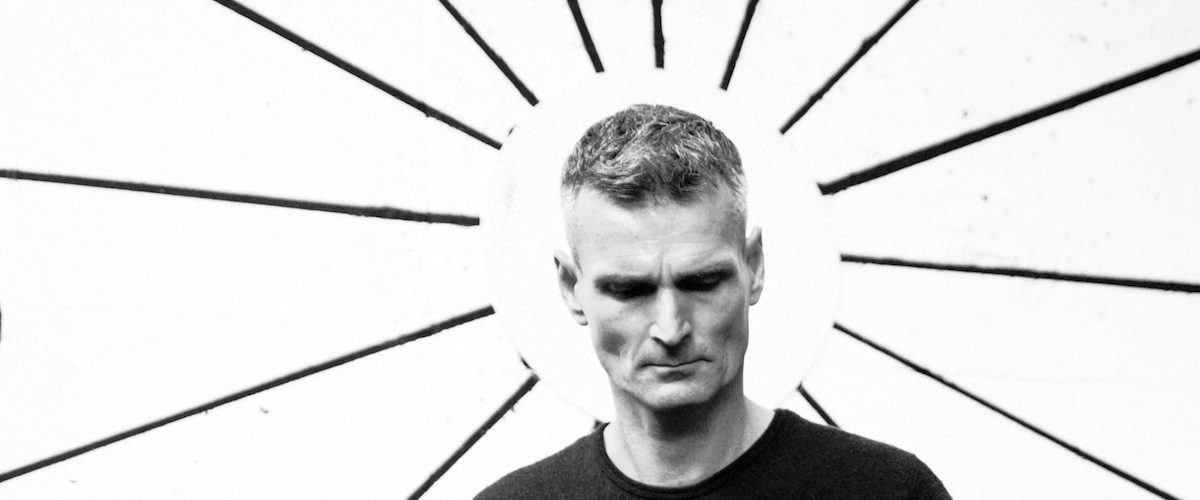
Burnt Friedman: Rhythmic Anomaly
The German experimental musician sets modern culture to rights.

As summer dawned on Berlin this year and the outdoor events program got underway, one particular coming together of artist and venue showed real promise: with its otherwise largely house-oriented calendar, Burnt Friedman’s debut at Club der Visionaere was an unexpected curveball. With sets from Audio Werner and Ion Ludwig bookending it, the German musician’s show was a pleasantly incongruous feature on the lineup. In the pokey confines of the booth, hunched over his mixing desk for about two hours, he patched together elusive rhythms and mystical textures, conjuring emotions of delight and confusion among members of the swelling crowd.
It’s a live experience that has been years in the making. Actively producing and recording music since the late ‘70s, the Nonplace owner has devoted himself to honing a style which confronts and dismisses broad western conventions. Enthused by counter-cultural sentiments and an outspoken voice against generic, popular styles, he is an experimental icon to many—tough to keep up with, difficult to categorize and impossible to ignore—though to him, that path is the obvious one.
Friedman’s subversive attitude to modern music trends has been well-documented by journalists over the years. Sure enough, as we chat one afternoon in his Berlin apartment, he is quick to nudge conversation in that direction. His gentle conviction serves him well as an ambassador for those alternative sounds, yet it’s touch in the studio that really gives it weight. I peer over his shoulder as he carefully tweeks his mixing desk, and it all makes sense.
Will a Burnt Friedman live set always be substantially different, even though you may be playing the same songs?
Exactly. You may recognize certain elements or sequences, which I would mix with other sequences—other single instrument tracks. Per song I run about 16 separate tracks of different lengths, loops if you wish, which I refine, exchange or redo over long time periods. Maybe in two years time they’ll be gone, even if the groove is the same. One has to distinguish between sound surfaces, and the form, which I call “mode” or “rhythm.”
The sound surface of an instrument is subject to taste and therefore likely to change over time. I would even claim that almost any kind of sound works and serves a musical function. as long as the structure—the form, patterns, or phrasing—is correct. By correct, I mean supportive.
Recording clearly stops the process of change. Musicians will always prefer the live situation I would say—you can present something that you are really concerned with at that moment, unless you are The Rolling Stones playing the same program over and over. You could argue that that isn’t even music, as it denies that natural dimension of motion.
“Music has hypnotizing qualities, an inherent potential to guide you into a different reality frame so to speak, to stop the ordinary flow of thinking.”
People today refer back to our amassing archives as if it was real, live music. Of course, any recording’s playback sound is, technically speaking, real, no matter how terrible your speakers may be. What has gone missing by making recordings, or by taking samples, is the dimension of continuous motion—a motion that should naturally evolve, containing different information with each following performance, new interpretations, new versions, and so forth.
I am saying this because, with today’s vast libraries and idiotic sub-divisions of genre, an artist’s original expression is doomed to fall somewhere in between countless filters. I think that listeners get the impression that everything in music has now finally been developed and is unalterable and petrified. During the late ‘90s, with Anglo-American pop and dance music, and their sub-cultures, the process of feeding and accelerating modernity may have come to an end point where one cannot be louder, faster, noisier, slower, lower, higher, and so forth. It’s created a standstill where everything seems retro from today’s point of view.
What would your alternative be?
There are a bunch of alternatives: not to take music as a hostage for all sorts of profane purposes. Allow music to be useless, because herein lies its greatest power. Avoid pinning it down to territories—music tends to travel beyond territory, which I am sure is no surprise; instead, it is predominantly represented by either individuals or small groups of people, not cities or nations.
That’s what I mean by saying music is motion. Whenever music is played, that is the perception of a specific moment which you are experiencing. If a playback is engaged once again at any occasion, specific memories return with a close connection to that consciousness. Music has hypnotizing qualities, an inherent potential to guide you into a different reality frame so to speak, to stop the ordinary flow of thinking.
Also, there is a big misinterpretation of the term electronic music. Imagine someone playing an acoustic rock kit—while he is playing, if you removed the kit and replaced it with an electronic one with sampled sounds, what the drummer does is the same. Would you call that electronic music? Does that define what is going on? It is just the sound surface.
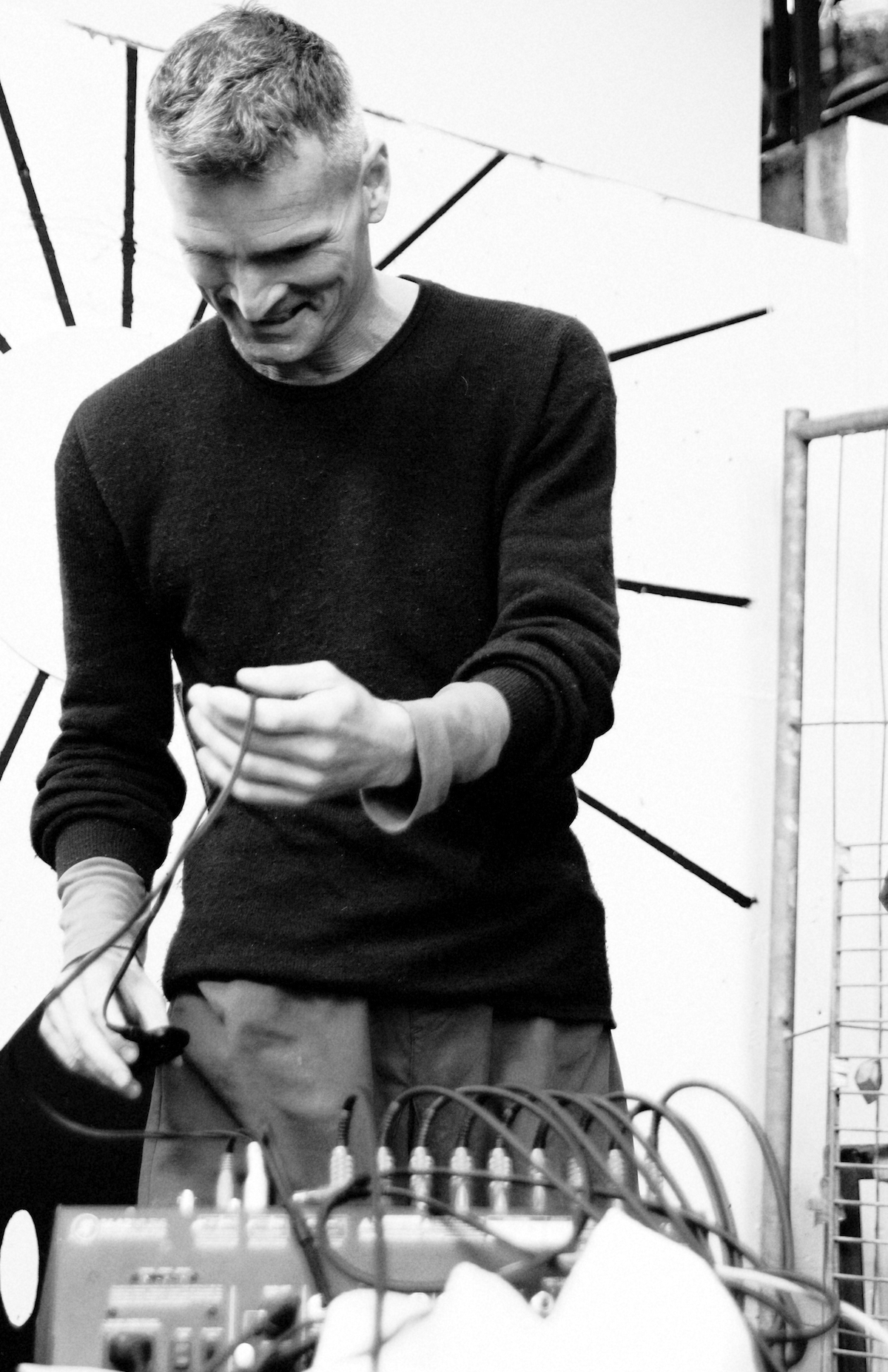
How would you categorize your own music?
I’ve always been fascinated by music that I don’t understand. So, I try to find out more about those types, about their structure. I thought it would be the desire of the regular listener, but as you can see from the club scene, it’s not like that.
I’ve read a quote from you that said the same thing elsewhere. Are you still finding more music that has the same impact?
I still continue to learn, of course. I have an understanding of my label as being like that of a scientist, but with a more unified concept, where all the different aspects of music are contained. I am exploring an area that is not man-made. It’s like electricity—man didn’t invent it, it’s something that is already there. It belongs to reality. The fundamental laws of music are not man-made, but are often responded to by musicians as an oppressive authority, standing in the way of personal expression.
I don’t have a background in music, and neither did my parents, so I’ve always had an intuitive approach to understanding music. I’ve learned things in a bad way—looking at American drummers for example. That’s just a certain concept of music that was sold to me. The rest was D.I.Y. A lot of music is about practice, but when you don’t have the right technique, you might not be able to play confidently.
“Pop and rock music is only so popular because it has been so brutally promoted. Most musicians think that is the way you have to make music, but that’s not the case. It’s just one particular strain. One interpretation, one branch. Often in western societies, people don’t see the alternatives.”
So you feel like you didn’t learn it properly to begin with?
No, I didn’t. I started with the standard rock drum kit, with the same technique many others did, by watching TV and music videos. It only serves a particular style. If you want to make something else, it will be difficult to get rid of that technique, to play new music.
Pop and rock music is only so popular because it has been so brutally promoted. Most musicians think that is the way you have to make music, but that’s not the case. It’s just one particular strain. One interpretation, one branch. Often in western societies, people don’t see the alternatives. They think of drumming as primitive. I don’t have that point of view. It’s not a question of taste, it’s objectively incorrect.
I understand that you have been looking to other cultures for inspiration for many years?
Just to learn, to find out what is happening in other places, where the music is referred to as being traditional. It’s quite misleading to use the word traditional however, because it’s often understood as outlining techniques which are carried from one generation to another. There’s some truth in that, but that’s not the whole story. Even in traditional music, things mutate all the time. That’s the nature of it, unless you have a super strict, rigid ensemble—though that’s rare.
What remains fundamental is the motion in the music. The motion pattern inherent in the tune doesn’t change, it’s like a law. What’s important though, is that it isn’t a straight-jacket—it’s actually quite flexible. It’s the same technique for all instruments. There are so many variations that you can play on that one rhythm, many different ways to execute it. It can always evolve, there are so many possibilities. The more experienced you are, the more fun it is to play.
We’ve all got a big advantage now—we can listen to music from all over the world because of the recordings that have been made. It’s amazing. Yet, what we have access to is only a small portion of all music. It might not be the best or most interesting stuff. Maybe if the recordings hadn’t been made, we might have even more lively music today.
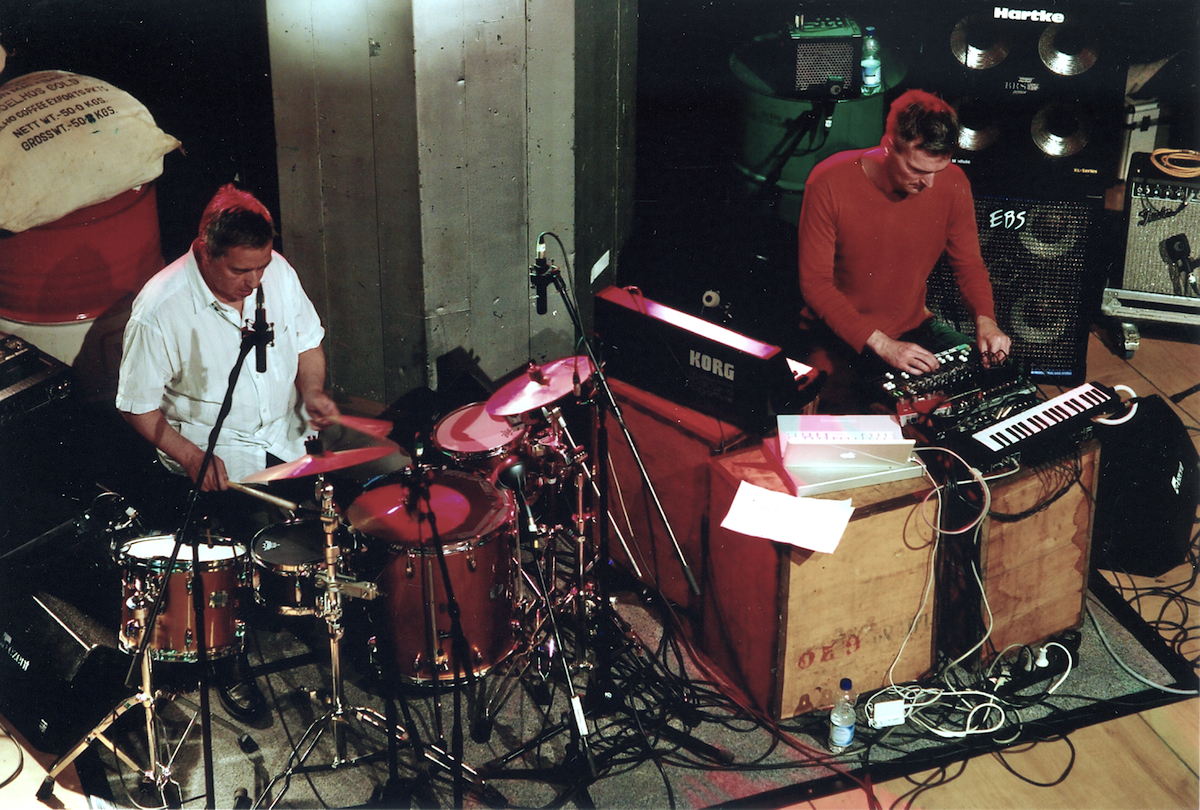
How does rhythm factor into this?
Usually when you go to a concert to see a band, they will normally play everything in the same rhythm—four or eight beats to a bar, probably. Maybe in the field of jazz one is more likely to come across various rhythm modes. If it changes, it’s very hard for the listener’s consciousness to switch from one to another. Maybe the old groove still resounds in your mind, and you then enforce it on to the next rhythm scheme. I assume that most people probably don’t get the groove, it’s a common thing.
It would happen to me too, but I have a trained ear. It’s only on a rare occasion that I don’t recognize the groove, and it becomes impossible for me to mix the tracks. Everything turns upside down. That means that the music informs me in a different way—maybe because I missed the cue point by pushing the fader at the wrong time, so it didn’t start from the beginning. Perhaps I had perceived it as an accent that drew me to the beginning of a loop, so I was coming at it from a different angle. It can be quite interesting sometimes, so I play with that. If you have longer cycles, then that stuff happens. I like the effect of rhythms falling apart, I like that surprise effect. Even I get to the point of the music being unpredictable.
With techno grooves on the other hand it’s almost arbitrary. The beats can be divided by two, so almost any combination of sound, noise and chords on that beat formula can work. It’s like a metronome, not really a rhythm.
Do you feel any connection to that kind of music? How does it impact on your when you play at those kind of events?
I have some metronomic elements in my music—a straight bass drum or hi-hat, very regular stuff. That’s my way of assimilating to trance-inducing, beat driven music. I use metronomic elements on odd grooves. It’s usually considered polyrhythmic, but actually it’s just a metronome. It’s not an alien element, rather the pulse of the music. Whether it’s low tempo or quick tempo, it’s just a pulse. In any rhythm, it’s always there, you just don’t hear it.
Polyrhythm has become a popular term because it’s void of sense. It’s an easy term. The way we use the term in our culture is for anything that doesn’t count in four. It’s stupid, but it serves a shrewd purpose—appearing to certify academic background knowledge, but is only obfuscating the matter.
Is there anything you heard in recent years that has impressed you?
It’s a legitimate kind of beat, sure! I was just listening to Mark Ernestus’ recent Ndagga Rhythm Force EP. In the early ‘90s I was impressed by techno when it had just started. I really enjoyed that music. The 909 and 808 bass drums, I really like them. The problem is that the sound hasn’t evolved anymore.
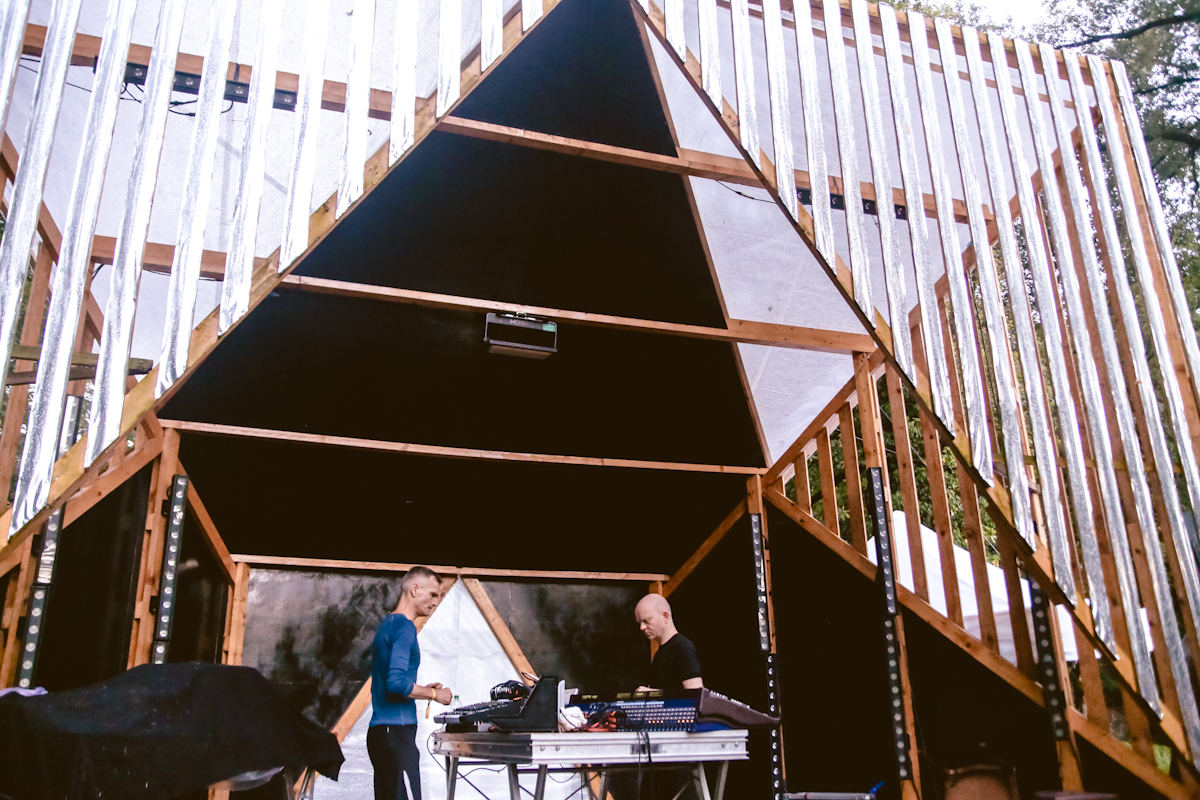
Do you think your own development has made it less exciting?
That is completely irrelevant. In fact, I almost can’t stand it anymore. By ‘95 or ‘96 I thought it wouldn’t last much longer. Up until the late ‘90s things were truly accelerating—people seemed to have the urge to create new genres, simply to be unique. They would come up with ironic projects just for the sake of inventing new genres, a competition to evolve. Within that scene, no big leap really took place. The developments were actually tiny, all within the same 4/4 rhythm.
Techno and IDM got mixed up, and sub-genres were developed, though it all came to a sudden end. Since then everything is just retro. It’s an interesting phenomenon. There’s been a creative standstill. This is a big generalisation, sure—there are always exceptions. I would consider myself one, too.
Jon Savage recently release a book called 1966: The Year the Decade Exploded. There’s another peak after that, around ‘82 or ‘83, when machines were introduced and different production methods came in. I relate to that one the most, because I was socialized in my teenage years with that kind of production. The stuff in my record collection that excites me the most comes from that time period, because it has the broadest spectrum of music.
Looking back from 2000 to the present, can you see any major change or development? There has been no eruption of new ideas. Mark Fisher, author of Ghosts of My Life, uses an interesting thought experiment—he suggests that we should beam a track from today back to someone in ‘92, and consider how they would respond to it. It probably wouldn’t be much of a shock to that person. He poses all the right questions. According to him, we’ve lost the sense of futurity in music. The only thing that has really developed is how we distribute the music.
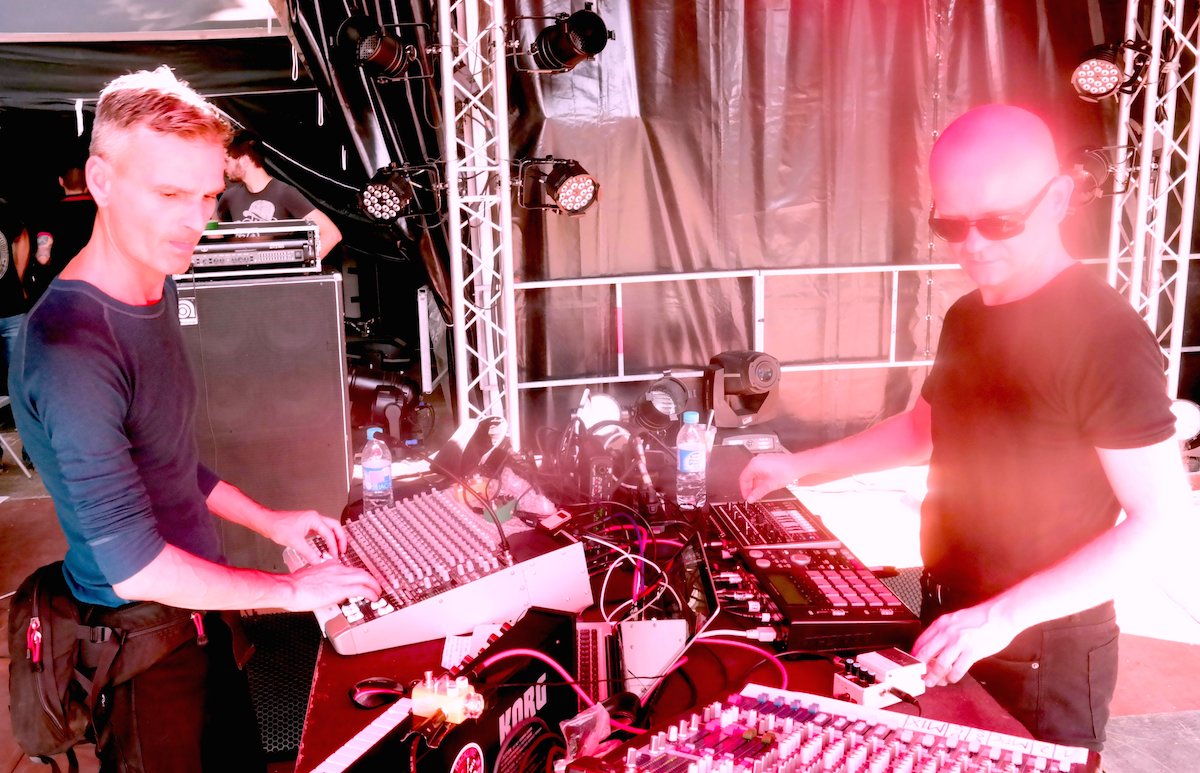
I wanted to ask about the return of Flanger. What was the impetus behind working with Uwe again?
The project never closed—we’ve always been in touch.
Were you together in the same studio for it?
We recorded the basic sessions together, but finalized them separately. We would just send the sessions back and forth, overdubbing them, working on them privately. It’s difficult to say who actually finished the works.
Is there a general role that each of you fulfill in the project?
There has been a significant change every time that we came together. Since the first time we recorded together in ‘96 and ‘97, there’s been a drastic change. At that point I would travel to Chile with an Atari and a sampler. Uwe would use a mixing board and MPC sequencer, with some modules connected. Everything that we composed on the albums Templates and Midnight Sound was mixed down and finished straight away, all within one day. It was all processed in improvisation mode. We could never go back to the beginning to change things.
The third album, Outer Space / Inner Space, was similar, though we also worked with a group of seven Danish musicians, who Uwe had worked with in his Señor Coconut tracks. We collected their contributions for the Flanger sketches, sampled parts from it and recombined it.
“Cooperation has deteriorated so much over the past 50 years. Society is atomized, people are all for themselves. Families are breaking up and everyone is just doing their own thing.”
By the fourth album, Spirituals, released on Nonplace back in 2005, we took a leap. It featured singing too. The process was more like how you might imagine—a more conventional way of working, with musicians too and other electronic tools. Last year’s Lollopy Dripper was just a duo production however, most of it programmed. Same goes for this year’s Spinner EP.
Do you still get a lot out of working in collaborations?
Back in the day I used to be happy with any kinds of contribution, as long as it was well-executed—in tune and rhythmically correct. I’m quite happy working alone now. The thing is, I can’t really afford musicians anymore. If I ask someone to play with me, I would like to offer them something for their time and expertise. I am not in that position anymore, like I was ten years ago for instance.
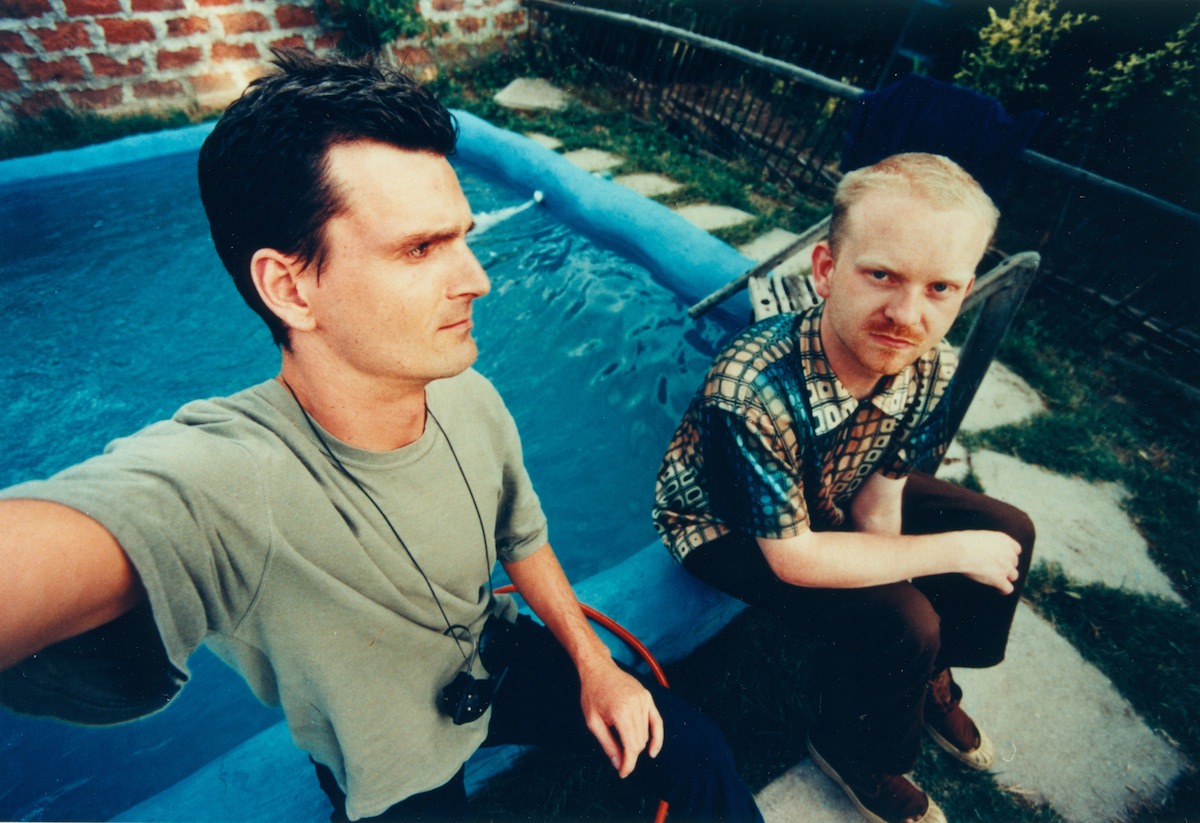
I suppose it’s an example of the creative cutoff we spoke about earlier.
Yes, that’s true. Also, cooperation has deteriorated so much over the past 50 years. Society is atomized, people are all for themselves. Families are breaking up and everyone is just doing their own thing. In music for example, everyone does their own label. Look back to the ‘70s—everyone had their own role, their own way to contribute. It was all about cooperation. Productions went through so many filters, and so it was more likely that everyone would agree on it.
Today, there are millions of sub-divisions. It’s easy for somebody working alone to feel totally euphoric about his own art. I know that when I started making music, I felt super excited, simply by playing a keyboard or listening to a drum machine alone. From someone else’s perspective, it probably wouldn’t be a valuable creative thing. If you were self-critical, you would be hesitant to release it. People have lost that filter.
Does this apply to your own music?
I still seek full cooperation—to play among people, and to perform like that. It’s become less feasible though. It’s hard to go on tour even with three people, I just can’t see it happening.
More broadly speaking, how does the world in 2016 influence your music?
This touches on another major misunderstanding of music in general. If you look at a musician’s history, it’s obvious that in their most tragic moments, emotion isn’t reflected in music. There is no evidence for that. Take Bach for example—he lost his parents when he was 10 and his relatives were all dieing. This is hardly reflected in his music. In fact, the interpretation of what emotions are contained in the music is entirely the listener’s job, not a feature of the music.
You can’t just impose your state of mind into the music. In fact, the opposite is as likely. If I’m going through a rough patch, I would probably use music to stop thinking about it. It’s a way to deal with it. That’s why it’s so important today, when so much shit is hitting the fan. Music can help you enter a different reality. You cut off thinking when you are truly immersed in it. Equally, it happens when you are listening to challenging music, too.
It’s a strange thought. How can you think that the world situation wouldn’t affect your music? Of course it must, you are a part of that game. You have to deal with it. The bigger question is how it translates. It would be reflected in lyrics, sure, but that’s actually just poetry. The tone and mood of the music is another matter—it follows its own logic.
We could all be dead at any point, even moreso now than 30 years ago. The threat is more in our consciousness, it’s much more probable. I see that. It’s really depressing, but it can only change if we realize that we need to cooperate. If everyone continues to work for themselves, then the world will continue to polarize. There needs to be radical paradigm shifts.
You can catch the European premiere of Burnt Friedman & Hayden Chisholm, live at Red Salon, Berlin, October 31st.

